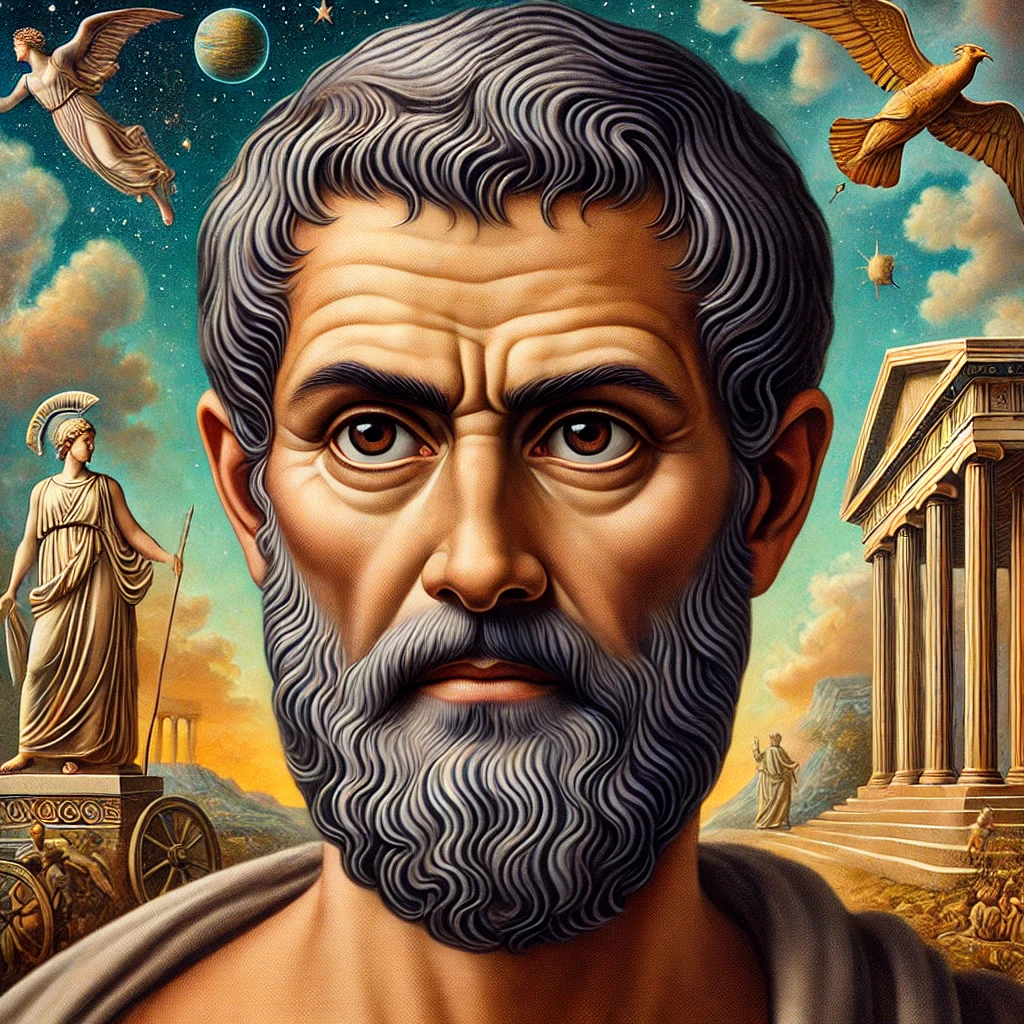Epictetus

Birth Date: circa 50 AD
Death Date: circa 135 AD
Place of Birth: Hierapolis, Phrygia (now Pamukkale, Turkey)
Place of Death: Nicopolis, Epirus (now Preveza, Greece)
Century: 1st
Region: Ancient Rome
"It’s not what happens to you, but how you react to it that matters."
Epictetus was born a slave in Phrygia but eventually gained his freedom and became one of the most influential Stoic philosophers. He believed that true freedom comes from mastering our own minds and accepting external events as they are. His teachings, based on the principles of Stoicism, stressed the importance of focusing on what we can control—our thoughts, actions, and reactions.
Epictetus taught that we should focus on what we can control and accept what we cannot. He emphasized inner freedom and the importance of virtue, believing that true happiness comes from within.
Discourses: A collection of teachings attributed to Epictetus, focusing on Stoic philosophy. The Discourses emphasize the importance of accepting what we cannot control and finding freedom through inner discipline. Enchiridion: A shorter manual of practical Stoic advice, distilled from the Discourses, guiding individuals on how to live a virtuous life.
Epictetus was influenced by earlier Stoic philosophers, particularly Zeno of Citium, the founder of Stoicism, as well as by the teachings of Socrates, who stressed the value of self-examination and virtue.
Epictetus' ideas were a major influence on later Stoics like Marcus Aurelius, whose 'Meditations' reflect many of Epictetus’ teachings. His philosophy also resonates in modern self-help movements that emphasize resilience and mental fortitude.
Although his teachings were widely respected, some critics argued that Epictetus’ focus on inner freedom could lead to passivity in the face of injustice. However, Epictetus believed that accepting what we cannot control does not mean condoning wrong actions, but rather maintaining personal integrity regardless of circumstances.
Few direct critics are recorded, but some thinkers questioned whether Stoicism’s emphasis on enduring suffering could lead to complacency rather than striving for social change.
Epictetus' teachings have had a lasting influence, particularly in the field of personal development. His ideas on mental strength and controlling our reactions to external events are still widely taught and practiced today.
Despite being born a slave, Epictetus’ reputation as a philosopher grew so much that even Roman emperors like Hadrian sought his advice. His teachings survived because his student Arrian recorded and compiled them into texts that have been passed down through the centuries.





